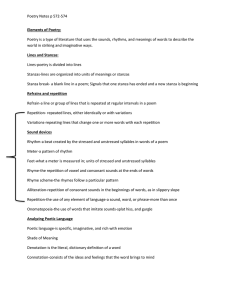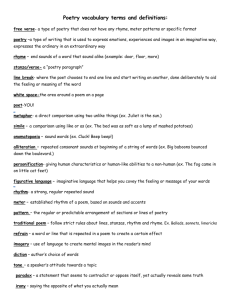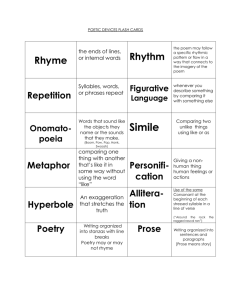figurative language
advertisement
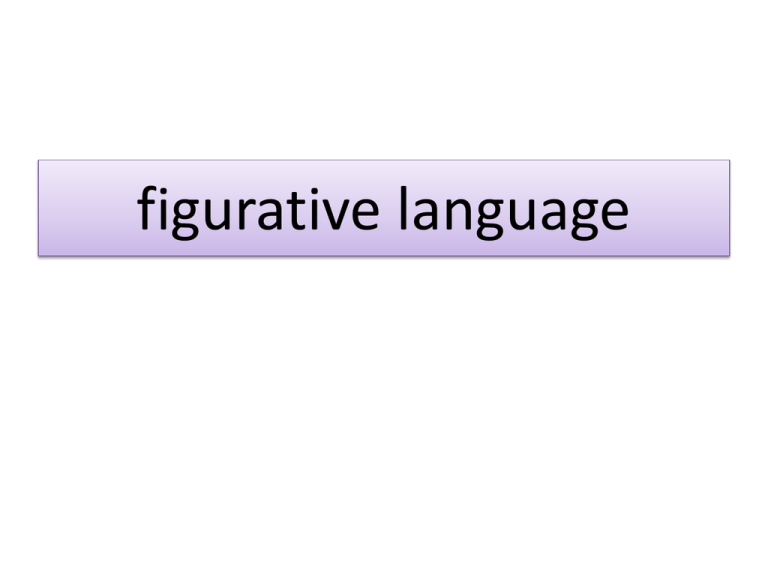
figurative language metaphor a comparison between two unlike things simile a comparison between two things using the word like or the word as personification human qualities are attributed to an object, animal, or idea hyperbole the truth is exaggerated for emphasis or for effect apostrophe an object, an abstract quality, or an absent or imaginary person is addressed as if present and able to understand oxymoron two contradictory words are found next to each other diction a writer’s or speaker’s choice of words and way of arranging the words in sentences imagery descriptive words or phrases that recreate sensory experiences for the reader sound devices alliteration repetition of consonant sounds at the beginning of words onomatopoeia use of words whose sounds suggest their meanings consonance repetition of consonant sounds within and at the ends of words assonance repetition of vowel sounds in two or more words that don’t end with the same consonant repetition a sound, word, phrase, or line is repeated for emphasis end rhyme rhyme that occurs at the end of lines of poetry near rhyme / slant rhyme end rhymes that are not exact internal rhyme rhyme that occurs within a single line meter pattern of stressed and unstressed syllables in a line of poetry (provides rhythm) rhythm beat or flow of a poem – sound created by the arrangement of stressed and unstressed syllables iambic meter in which one unstressed syllable followed by one stressed syllable equal a foot of poetry pentameter meter in which one line of poetry consists of five feet of poetry (a foot of poetry is usually two or three syllables) form stanza group of lines that form a unit in a poem couplet two lines of poetry with end rhyme quatrain a four-line stanza parallelism use of phrases, clauses, or sentences that are similar in structure or meaning type epic poem a long poem that tells a story; usually serious and traces the adventures of a great hero narrative poem a poem that tells a story ballad a poem that focuses on one incident and was originally intended to be sung lyric poem a short poem in which a single speaker expresses personal thoughts and feelings sonnet a short poem with 14 lines written in iambic pentameter and a set rhyme scheme haiku a three-line poem that is usually about nature and follows a strict number of syllables per line elegy an extended poem in which the speaker reflects on death, often in tribute to a person who has recently died
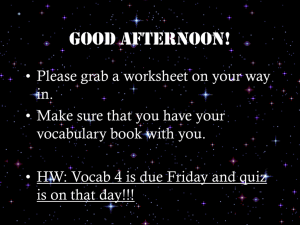
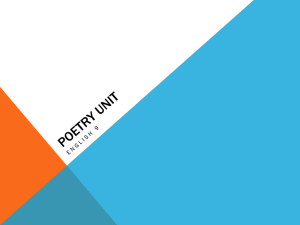
![English poetic terms[1].](http://s3.studylib.net/store/data/009640365_1-09d91eea13bb5c84d21798e29d4b36a3-300x300.png)
